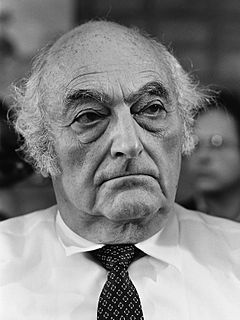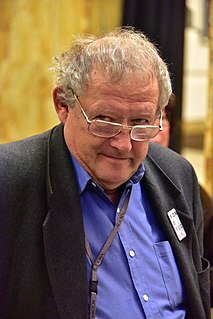A Quote by Vaclav Klaus
I was 25 years old and pursuing my doctorate in economics when I was allowed to spend six months of postgraduate studies in Naples, Italy. I read the Western economic textbooks and also the more general work of people like Hayek. By the time I returned to Czechoslovakia, I had an understanding of the principles of the market. In 1968, I was glad at the political liberalism of the Dubcek Prague Spring, but I was very critical of the Third Way they pursued in economics.
Quote Topics
Allowed
Also
By The Time
Critical
Czechoslovakia
Doctorate
Economic
Economics
General
Glad
Had
Hayek
Italy
Liberalism
Like
Market
Months
More
Naples
Old
People
Political
Prague
Principles
Pursued
Pursuing
Read
Returned
Six
Six Months
Spend
Spring
Studies
Textbooks
Third
Time
Understanding
Very
Way
Western
Work
Years
Related Quotes
When people are running up more and more debt for housing, they call that "real wealth." It exposes what's wrong in the mainstream economics and why most of the economics that justifies austerity programs and economic shrinkage is in the textbooks is not scientific. Junk economics denies the role of debt and denies the fact that the economic system we have now is dysfunctional.
I started in the law; and the study of law, when it precedes the study of economics, gives you a set of foundation principles about how human beings interact. Economics is very useful, and I studied economics in graduate school. But without understanding the social and organizational context of economics, it becomes a theory without any groundwork.
I believe in market economics. But to paraphrase Churchill - who said this about democracy and political regimes - a market economy might be the worst economic regime available, apart from the alternatives. I believe that people react to incentives, that incentives matter, and that prices reflect the way things should be allocated. But I also believe that market economies sometimes have market failures, and when these occur, there's a role for prudential - not excessive - regulation of the financial system.
I began my career as an economics professor but became frustrated because the economic theories I taught in the classroom didn't have any meaning in the lives of poor people I saw all around me. I decided to turn away from the textbooks and discover the real-life economics of a poor person's existence.
An old market had stood there until I'd been about six years old, when the authorities had renamed it the Olde Market, destroyed it, and built a new market devoted to selling T-shirts and other objects with pictures of the old market. Meanwhile, the people who had operated the little stalls in the old market had gone elsewhere and set up a thing on the edge of town that was now called the New Market even though it was actually the old market.
The more people that understand and are made able to spot liberalism, and then the more people are able to associate liberalism with the problems in their lives, the political problems, the economic problems, the more people can be conditioned and educated to understand that liberalism is the problem, coupled with the ability to spot it, would be the fastest way to eradicate it. It would be really helpful if we had a Republican Party engaged in this.











































